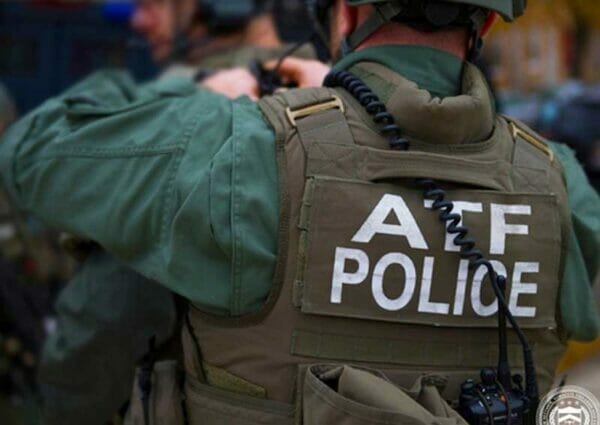
In 2021, AmmoLand News published leaked documents showing that the Bureau of Alcohol, Tobacco, Firearms and Explosives (ATF) was using the Federal Bureau of Investigations (FBI) National Instant Criminal Background Check System (NICS) to monitor Americans without a warrant. In many cases, there was no evidence of wrongdoing; the monitoring was due to the affiliations of those being watched. The report led Gun Owners of America (GOA) to file a Freedom of Information Act (FOIA) request for more information.
“In April of 2021, journalist John Crump reported that leaked ATF documents revealed the agency’s involvement in a covert, warrantless surveillance program of an untold number of law-abiding firearm purchasers, through daily monitoring of all firearm transactions that are processed through the NICS system,” GOA writes.
After a year of waiting and threats of lawsuits, the ATF would finally produce documents about the program. The documents in question would reference reasons for redactions, but the actual documentation lacked these redactions. GOA contacted the ATF to get the redacted versions of the documents to release to the public. That is when the ATF realized its error and demanded that the gun rights organization destroy all the documents it possessed.
The gun rights organization refused. The documents were released to the gun rights organization by the ATF. GOA did not acquire the documents through any illegal methods and felt it had every right to keep and use the documents to inform the public of the unlawful monitoring of Americans. The ATF would file for a protective order against the advocacy group to try to compel it to destroy the documents and provide affidavits attesting to the destruction of the files and agreeing never to talk about them.
This request is similar to what ATF’s lawyers tried to do to a reporter in the AutoKey Card case when AmmoLand News acquired a copy of the pre-sentencing report. In that case, my legal team, led by Stephen Stamboulieh and funded by GOA, filed a motion to intervene and got the ATF to back down and withdraw the motion. Mr. Stamboulieh once again has been tapped to fight against an ATF gag order, but this time, he was tapped by GOA.
GOA argues that the law is clear. It claims that since the documents were not gathered via illegal means by the organization, it has every right to keep them. GOA contends it is not obligated to help the ATF fix its mistake. The organization is willing to destroy any personal information, including social security numbers, but will not submit to a blanket destruction order. GOA claims the ATF is trying to cover up its covert surveillance program.
“Defendant may prefer that various details of its covert monitoring activities never see the light of day, its Motion for Protective Order seeks relief that conflicts with core First Amendment rights. Even in the best of scenarios, an agency’s request that a court order a FOIA requester destroy documents is an “‘extraordinary’ ask that should not be granted as a matter of course.” Such a request becomes even more suspicious when the government asks a court to command a nonprofit, public-interest organization, that has repeatedly engaged in quintessential press activity with regard to the very matter at issue, to destroy voluntarily disclosed government records of a warrantless surveillance program. The government’s ask here thus represents a request for a classic prior restraint that is subject to the strongest presumption of invalidity,” the brief reads.
The ATF claims it wants to protect the privacy of those it targets. GOA says it finds this claim ironic because the ATF’s program itself is violating the privacy rights of the monitoring targets. The organization wants to share the documents with Congress. It is possible that the Bureau seeks to prevent the documents from reaching the hands of those overseeing the agency.
“It is a sad and ironic twist that the ATF professes its desire to protect the privacy of gun owners, considering this case involves ATF’s covert surveillance program that for years has been spying on, invading the privacy of, and gathering private information about those very persons. It is more ironic still that ATF seeks to protect that information vis-à-vis Plaintiffs, nonprofit organizations whose mission is to protect and defend the rights (including the privacy) of gun owners against government infringement,” the brief reads.
GOA asked the court to prevent the ATF from infringing on the organization’s First Amendment Rights. It rejected the ATF’s assertion that releasing the documents was not in the public’s interest. AmmoLand News, for example, would use the documents to better understand the program and what groups are being monitored.
The ATF’s years-long battle to keep the program secret led many to ask, “What is the ATF trying to hide?”
ATF Attempts To Silence Gun Owners of America, 28 Opposition to MPO by AmmoLand Shooting Sports News on Scribd
About John Crump

from https://ift.tt/uWrJCKd
via IFTTT

No comments:
Post a Comment